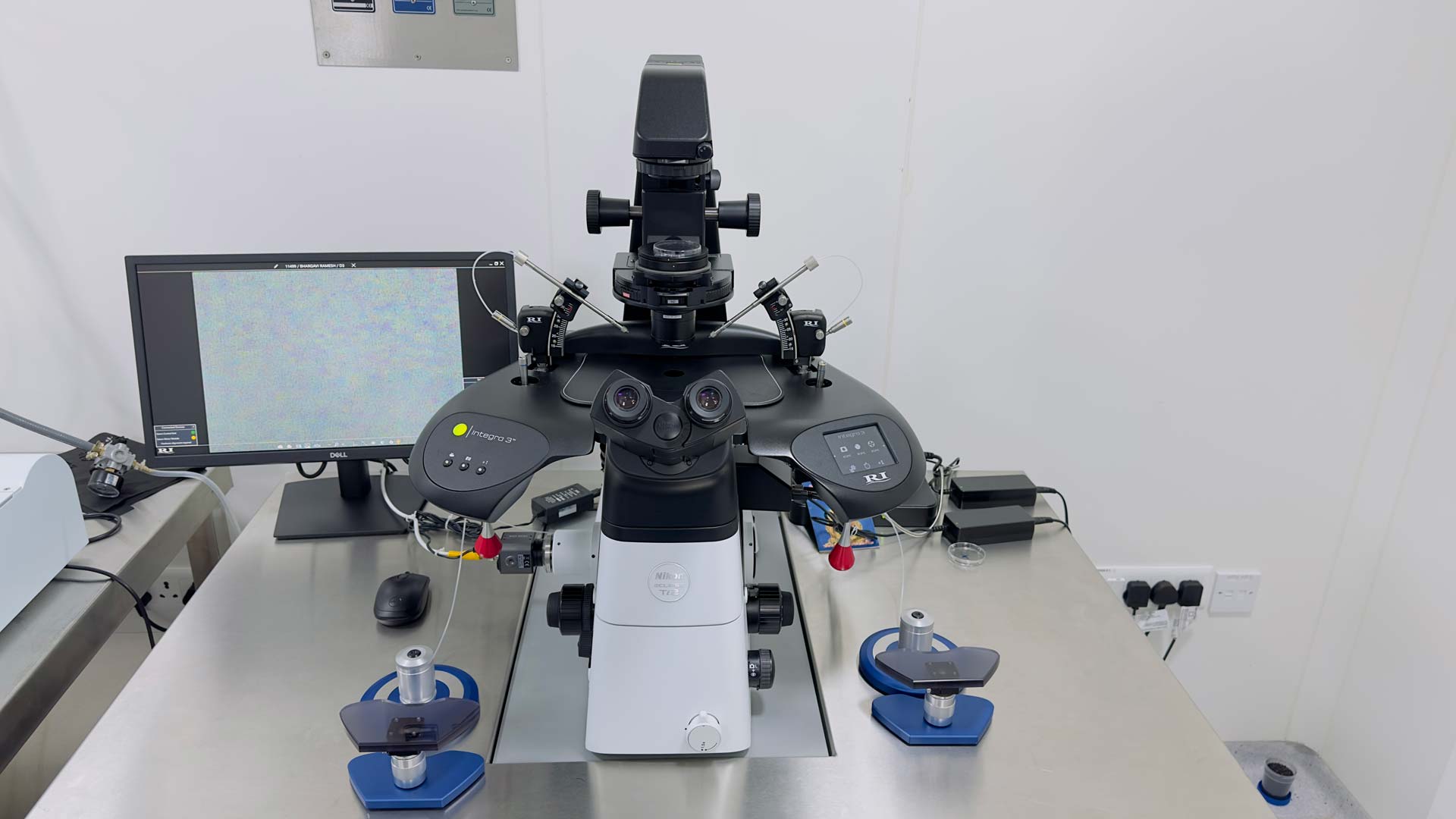The Intracytoplasmic Sperm Injection (ICSI) procedure has emerged as a boon for many men striving for parenthood. It's an ideal solution for couples facing significant male factor issues, such as low sperm count and motility. ICSI treatment holds remarkable success, particularly for male infertility cases. It involves directly injecting a single sperm into an egg, leading to embryo formation for uterine transfer.
Importantly, ICSI treatment doesn't impact a child's physical or mental development. Our medical experts often recommend standard IVF, as ICSI and IVF exhibit similar pregnancy rates. Keep in mind, while IVF is a less complex yet highly effective approach, yielding exceptional outcomes.
FAQ's
What is ICSI
ICSI, or Intracytoplasmic Sperm Injection, is a specialised form of assisted reproductive technology (ART) used in cases of male infertility. It comprises the injection of a single sperm directly into an egg to facilitate fertilisation. This procedure is typically performed with in vitro fertilisation (IVF) to increase the possibilities of successful fertilisation and pregnancy.
When is ICSI recommended?
Fertility experts generally recommend ICSI when there are significant male infertility factors present, including poor sperm motility, low sperm score, or abnormal sperm morphology. It is also used in cases where previous attempts at fertilisation have failed using traditional IVF methods. Your fertility specialist will determine if ICSI is the most suitable treatment modality for you based on the results of diagnostic tests and a thorough evaluation of your situation.
How is the ICSI performed?
The ICSI procedure starts with the retrieval of eggs or ova from the female through a minor surgical method known as follicular aspiration. The fertility expert then places these collected eggs in a culture dish, and a single sperm is carefully selected using a high-powered microscope and a specialised piece of equipment called a micromanipulator and immobilised. Using a specialised needle, the embryologist injects the selected sperm into the cytoplasm of the ovum. After the injection, the fertilised egg, now called an embryo, is cultured in the laboratory for a few days before being transferred into the uterus.
How is ICSI different from traditional IVF
The main difference between ICSI and traditional IVF lies in the method of fertilisation. In traditional IVF, the ova and sperm are fertilised in a culture dish, allowing the sperm to fertilise the eggs naturally. In ICSI, on the other hand, a single sperm is selected and inoculated into each egg. This targeted approach overcomes certain male infertility factors that may hinder fertilisation through traditional IVF methods.
What are the success rates of ICSI?
The success rates of ICSI vary and depend on various factors, including the age of the female partner, the quality of the ova (eggs) and sperm, and the couple's overall health. On average, the success rates of ICSI range from 40% to 50%, with higher success rates observed in younger women and couples with fewer infertility factors. Consultation with a fertility expert to understand your chances of success with ICSI is crucial.
Are there any risks or side effects associated with ICSI
Like any medical procedure, ICSI carries certain risks and potential side effects. Some potential risks include infection, bleeding, and damage to the eggs or embryos during the injection process. Additionally, there is a slightly increased chance of specific genetic abnormalities in children born through ICSI. However, the overall risks are generally low and can be minimised through careful evaluation and selection of suitable candidates for the procedure.
Can ICSI be used in cases of female infertility
The primary application of ICSI is in cases of male infertility. However, in some instances of female infertility, such as poor egg quality or previous failed fertilisation attempts with traditional IVF, ICSI may be considered as a treatment option. Your fertility specialist will assess your specific situation and recommend the most relevant treatment approach to maximise your chances of achieving pregnancy.



